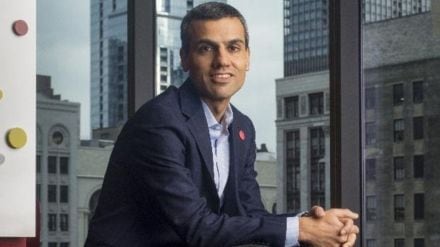Future returns in the next decade across asset classes and regions will lag the returns we’ve experienced in the past decade, believes Morningstar Global CEO Kunal Kapoor. He tells Ananya Grover that investors should stick to simple, long-term, and diversified portfolios. Excerpts:
Are you expecting the India-US deal to finalise and if it is already priced in the market?
I have no idea but for most investors, ten years from now, they won’t even remember that this was something that happened in 2025. This can lead to variations in the market and impact portfolios in the short run but most people should not care about them. Investing is about the long game and the best thing I can tell most people is go on a vacation versus worrying about tariffs. We won’t really know what the impacts are for some period but there’s no doubt that it does raise costs.
What is your take on valuations in India market after the underperformance in past one year?
This year’s performance in India, is a comment on what valuations were and the reality that anytime valuations get pushed to certain levels, to earn a return back becomes much harder. I don’t think it matters, you want to be in the market for the long haul and there’s always periods where there’s some over on the valuations that may dominate. But I think you want to stay invested. So, it’s very hard to guess when those times are to get out or get in.
Will most investors that entered in past three years panic due to moderation in returns?
There’s been a maturity over this period as digital technologies enabled it but it’ll not I don’t think they’ll panic because what’s the alternative? Building a diversified portfolio is very important, a portfolio that matches your risk tolerance. So, that means having exposure not only to things that are doing well, but sometimes taking contrarian positions and putting some of those into your portfolio in a way that makes sense.
Despite valuation concerns, investors are continuing to invest in small and midcap schemes. How do you see it?
I think investors are more disciplined, thoughtful, and they’re being advised in a better way. I think it’s great. Small and mid-cap has underperformed and I think you can make a reasonable argument that there’s a world where they start to come back. Right. Even as the big ones maybe moderate their returns. Even in the US, you can’t say the whole market is impacted like valuations have gone up in the US, because the seven stocks are accounting for most of the return of the Morningstar US market index. Their size is huge. And so, they have an extraordinary impact on the overall markets and perceptions of the market. But you can’t say that it’s the whole market. I think there’s a lot going on under the surface.
How should investors look at IPOs and what is your advice to investors?
I think most investors are better off not paying attention to IPOs. I think investors in India are showing that they’re pretty sophisticated just by the way they’re sticking it out all I would say is there will come a time when maybe the returns will not be as good, there will be a down market and many investors here have not experienced one in a long time. When that does happen, just having fortitude and sticking to your plan is good. It’s always good not to be too euphoric when things are going well and not to be too down when things are not. Stick it out. Simple portfolios, long-term portfolios, diversified portfolios, that’s how you build wealth. Trying to time the market, pick which sector is going to do well, get in and out of ETF is not a recipe for success.
Is AI going to be a big driver of growth in the US and what is your take on AI stocks?
The evidence suggests that it is. In US GDP growth, there are some estimates that AI is accounting for as much as 40% of current U.S. GDP growth. So, there’s no doubt that all the data centres being built out, all the electricity that needs to support it, all of that adds up over time and is definitely leading to a situation which is that the U.S. economy is experiencing some positive growth as a result of it. Stocks, there are some that we think are overvalued, some are not. It’s reasonable to say that there’s more risk to investors than used to be the case because returns have been good for a long period of time. So, whether you’re in India or other parts of the world, it’s fine to moderate your expectations because there’s no doubt in my mind that future returns in the next decade across asset classes and regions will lag the returns we’ve experienced in the past decade.
